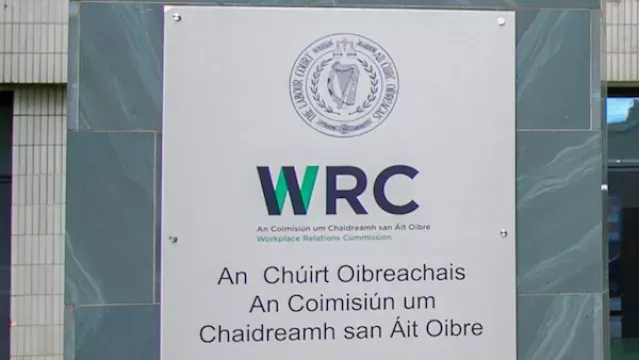Non-Essential Travel
NON-ESSENTIAL TRAVEL
On 21st July the Department of Foreign Affairs published an important travel advisory update in relation to Covid-19 which included the much anticipated ‘Green List’ of countries that have low levels of Covid-19, similar to or below that of Ireland.
Whilst there has been much confusion surrounding this list, we now finally have some clarity on what it means.
Most importantly, it remains the guidance of the Government, that the pandemic is not over and the that the safest thing is to avoid ‘non-essential travel’ overseas.
This list means that anyone travelling to Ireland from a ‘Green List’ location, will no longer have to restrict their movements for 14 days on arrival. However, this list will be reviewed every fortnight.
These ‘Green List’ locations are:
• Cyprus
• Estonia
• Finland
• Gibraltar
• Greece
• Greenland
• Hungary
• Italy
• Latvia
• Lithuania
• Malta
• Norway
• Monaco
• San Marino
• Slovakia
The list does not include Great Britain; however, Northern Ireland is exempt from any travel restrictions. It is also important to note that the advice remains to avoid travel by cruise ship even in countries on the ‘Green List’.
GUIDANCE FOR EMPLOYERS ON TRAVEL ABROAD
Whilst the guidance from the Government remains for all Irish Citizens and Residents to avoid unnecessary travel, it is possible that more employees will now be considering travel abroad.
In the first instance, it is important that employers communicate their Company policies in relation to the international travel of its employees. Therefore, we would recommend that employers send a notification to all staff outlining their policy and procedure in that regard.
Such a policy should inform employees that upon receipt of annual leave requests, the company will ask them to disclose if and to where they intend to travel, if abroad during their annual leave.
TRAVELLING FROM COUNTRIES NOT ON THE “GREEN LIST”
The Covid rating for all other locations which are not on the ‘Green List’ remains unchanged at either to ‘avoid non-essential travel’ (“orange”) or to ‘do not travel’ (“red”). Therefore, citizens and residents returning to Ireland from these countries will be required to restrict their movements for 14 days.
Restricting movements means staying indoors in one location and avoiding contact with other people and social situations as much as possible.
Employers will naturally be concerned about the level of disruption that the 14 days isolation period could cause for their business and operations if employees choose to travel abroad to countries not on the ‘Green List’.
It should be made clear to employees that if they are requesting annual leave for travel to countries which are not on the ‘Green List’, that in addition to the normal considerations with regard to accommodating the period of annual leave i.e. operational considerations, the need for rest and recreation or to reconcile family responsibilities, consideration will also have to be given as to whether the company is in a position to facilitate the 14 days isolation period on their return.
Employees should be reminded that the Company must maintain a certain level of staff in order to sustain its operations, therefore it may not always be possible to authorise annual leave that will require an isolation period thereafter.
In circumstances where annual leave for non-essential foreign travel to countries not on the ‘Green List’ is authorised, employees should be reminded that they must restrict their movements for 14 days on return, if still required at that time, and that they must not return to work during this period. They should also be informed of how this 14-day period will be treated for pay purposes. In particular, employers may wish to advise them that additional annual leave or pre-authorised unpaid leave should be used to cover this 14-day period.
TRAVELLING FROM COUNTRIES ON THE ‘GREEN LIST’
Employees travelling to locations on the ‘Green List’ should be advised that they must still follow the public health guidelines of the local health authorities and to continue practicing physical distancing measures, hand hygiene and respiratory etiquette etc.
We are also mindful that the list is to be reviewed every two weeks, which means that changes could be made whilst employees are travelling to these countries that could result in isolation periods being re-introduced on their return or employees could be subject to travel restrictions due to new measures introduced in the countries themselves. Therefore it should be made clear to employees that should they be unable to return as a result of restrictions introduced by the country that they have travelled to, how this period of leave will be treated and whether additional annual leave or unpaid leave will be provided during this period.
RETURN TO WORK PROTOCOLS
It is recommended that regardless of whether an employee is travelling during their Annual Leave or not, that return to work protocols should be in place for all employees following return from annual leave, wherein they are once again requested to confirm whether they have travelled abroad and to where, if they are suffering from symptoms and if they have been in contact with any confirmed cases of COVID.
Finally, all employees should be advised that when on leave they should comply with normal distancing and other Covid guidelines to minimise the risk of infection or spreading the virus.
FURTHER DETAILS ON THE UPDATE OR ABOUT OUR SERVICES MAY BE OBTAINED
FROM:
JOHN BARRY/TARA DALY/ HUGH HEGARTY AT TEL: 01 8870690












